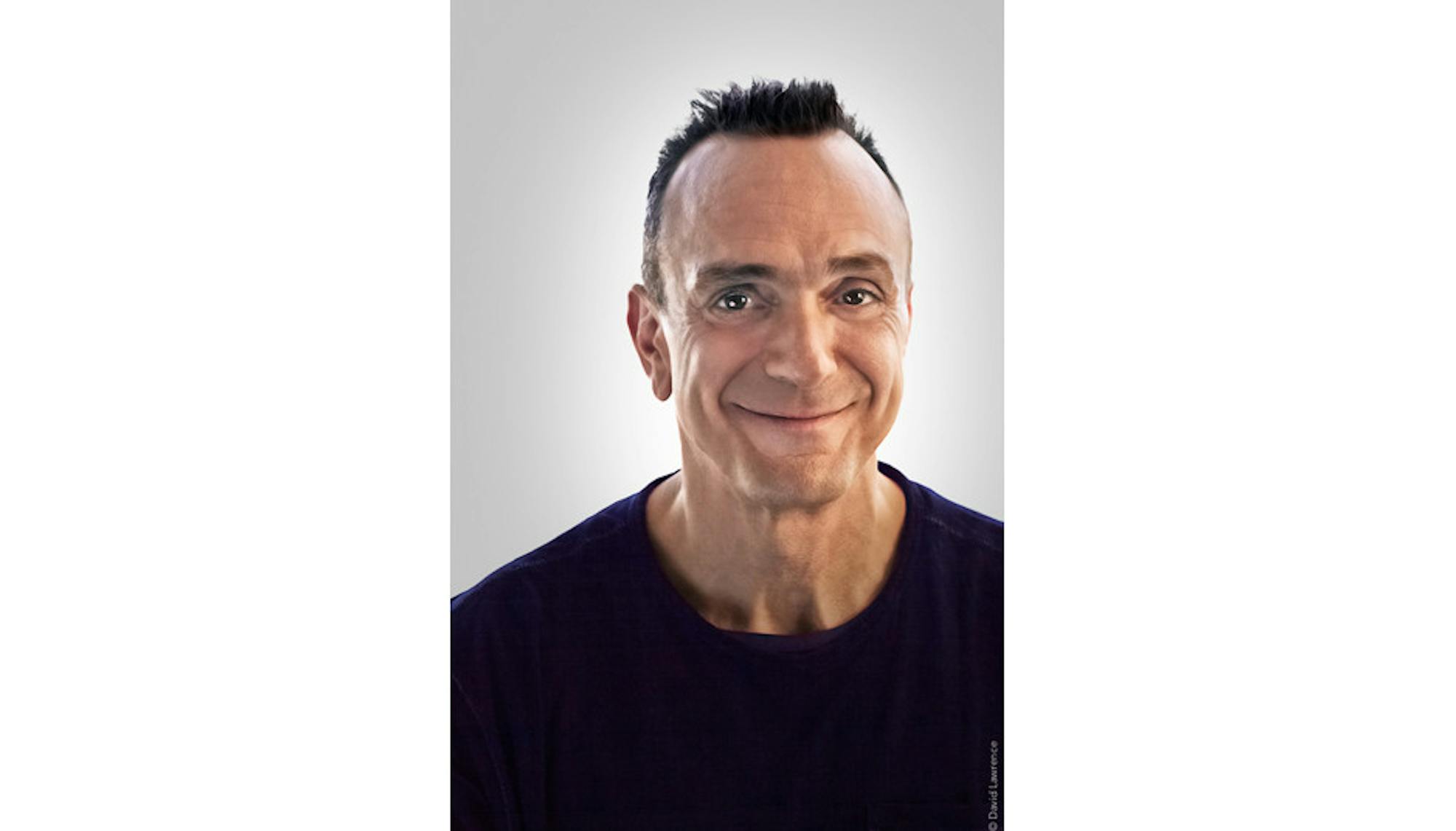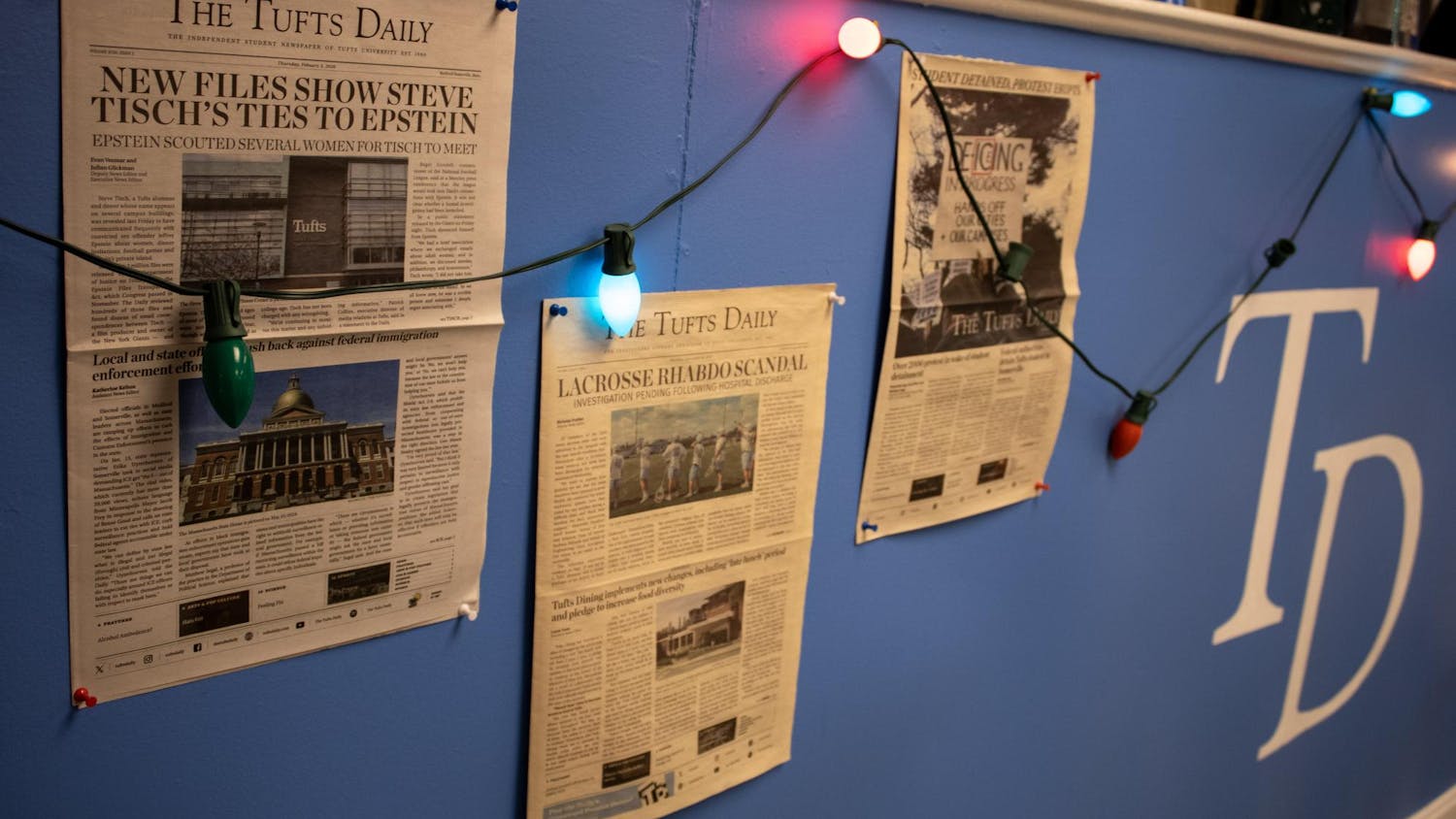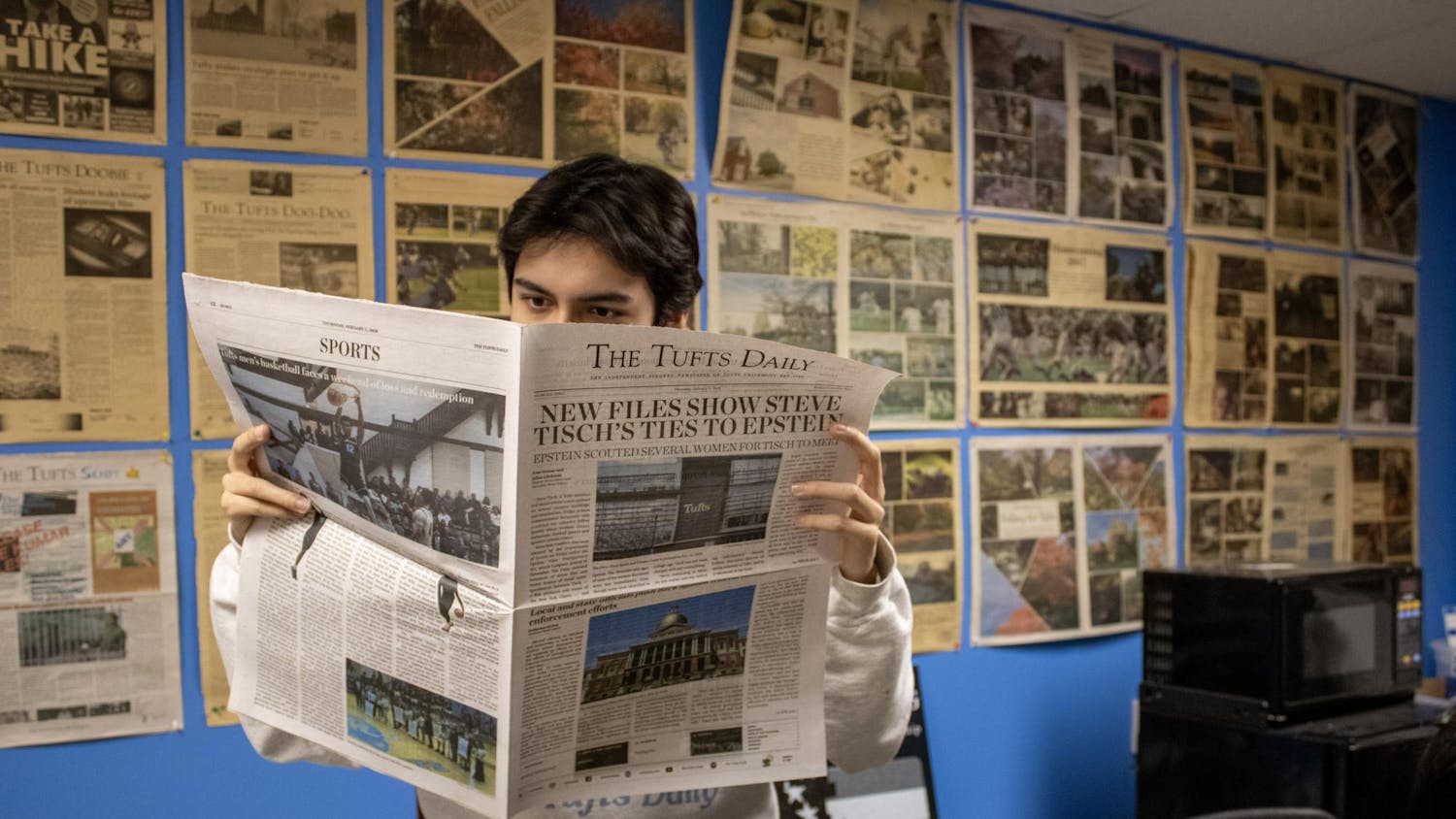Comedian and actor Hank Azaria, the Commencement speaker for the Class of 2016, graduated from Tufts in 1987 with majors in drama and psychology. He went on to have a successful acting and voice acting career, notably voicing a number of characters on "The Simpsons," including Moe Szyslak, Chief Wiggum and Comic Book Guy. Azaria spoke with the Daily about his journey from performing in the Balch Arena Theater to working on a number of high-profile productions.
Tufts Daily (TD): Can you talk a bit about your experience while you attended Tufts?
Hank Azaria (HA): I really loved it. ... I came to school interested in drama, psychology and journalism, and ended up spending most of my time in the theater, and made a lot of really good friends through the drama department and a lot of really good friends uphill — guys who mostly went into finance, became doctors, lawyers. And many of them from both those worlds are still really close friends of mine ... I really, really loved being on my own and being up there; I loved Boston.
TD: How has your Tufts experience influenced your career?
HA: [The process of] doing shows in the drama department at the [Balch] Arena Theater wasn't that different when I got into the professional world ... Knowing how much work goes into it, what the rhythms of it are, and what it takes personally and professionally to do it really made a big impression on me, and I learned that I really did love it. I don't think I even realized how much I loved it until I looked back and thought, "boy, I really spent every waking hour in that theater," so I must have really enjoyed it.
TD: Tell us a bit about your career path after graduating from Tufts.
HA: Leaving Tufts I was kind of a theater snob; I'd only really worked in theater, I thought that, really, theater was what I wanted to do, as opposed to film or TV. [I thought] I wouldn't turn down TV, I wouldn't turn down any work, but that's what I really wanted to pursue. So I went to New York, which is where I grew up, and I got an agent pretty quickly, but I didn't get any theater jobs ... Within a year of graduating I moved out to LA and pursued television and film acting. And I did some theater, stand-up, all kinds of things. And within a year or two, I started working on "The Simpsons." I was young, I think I was 23 when I auditioned for it.
TD: How do you feel about where you are now in your career?
HA: I'm really happy with where I'm at now. I'm still doing "The Simpsons." I have a bunch of jobs, and I really love them all. I just finished a play at the Public Theater, and hopefully going to be on Broadway doing a musical version of "The Honeymooners" either this fall or this spring. I work on "Ray Donovan" (2013 - present); I really love working on that TV show. I'm about to start my own series for IFC about a baseball announcer who loses his mind on the air, a character I've done since I was in junior year of high school. It only took about 40 years, but I finally got a show developed for him. I feel really fortunate that I get to do a lot of different stuff.
TD: How do you think voice work and the animation industry has changed over the years?
HA: "The Simpsons" ushered in a new era of animation. When we first premiered we were sort of edgy, and now we're quite tame compared to shows like "Family Guy" (1999 - present) and "South Park" (1997 - present) ... It's really awesome to see how much you're allowed to get away with in comedy and how much adult sensibility has been brought to it, even more so in live action stuff. Speaking on the process, not much has changed. Now all the animation's digital; when I was first doing it it was still drawings ... and it's gotten much quicker. It used to take a year, year and a half to get a Simpsons episode out there, now it still takes a while but it's a lot quicker than that. But the process hasn't really changed. People go record voices and then they animate; that's basically how it goes.
TD: Who is your favorite voice to do on "The Simpsons?"
HA: Professor Frink, because it's so silly, and once I start doing it I can't stop. It's based on Jerry Lewis, the originally nutty professor many years ago ... which I loved as a child.
TD: What advice do you have for Jumbos who want to follow your path?
HA: Find classes that you like (acting, voice, or whatever you want to do). That's really important for a few reasons: one, it's good to learn; two, it's important to stay busy working at your craft. It's extraordinarily important to start working right after school. It's important to find a place where you can keep working, even if you aren't getting paid to do it yet. ... And have patience and be persistent. Good things don't usually happen overnight. ... For every one yes you get you get literally about a hundred no's. If you stay with it and you work hard, you [still] need to get lucky, but I think luck presents itself over and over again. The business will let you know if it wants you to be part of it or not; that will become apparent after a few years. And I think it's good to have a Plan B. I was all fit to go back to grad school for psychology, and really assumed I would. I just wanted to try [acting]; I knew I'd regret it if I didn't give it a shot while I was young, so I did.
Editor's note: This interview has been edited for clarity and length.
Hank Azaria discusses time at Tufts, acting career path

Hank Azaria (A '87) is this year's Commencement ceremony speaker.





